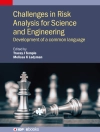In ‘The Early History of the Airplane, ‘ editors Wilbur and Orville Wright assemble a groundbreaking collection that explores the nascent stages of aerial innovation and its profound impact on the 20th century and beyond. This anthology boasts a rich tapestry of narratives, technical analyses, and reflective essays that traverse the diverse literary landscapes of historical documentation, personal memoir, and scientific inquiry. The compilation stands out not only for its historical significance but also for providing a panoramic view of the early advancements in aviation, told through the lens of its very pioneers. The Wright brothers, Wilbur and Orville, not only contributed their writings but also curated a selection that reflects the intricate web of challenges, triumphs, and epiphanies that characterized the dawn of human flight. As figures central to one of history’s most transformative eras, their collective voice offers an authentic and comprehensive exploration of aviation’s embryonic phase, positioning this anthology at the confluence of technological innovation and human ambition. The collection resonates with the era’s broader cultural and scientific movements, encapsulating a pivotal moment in the chronicles of engineering and human achievement. ‘The Early History of the Airplane’ is an indispensable read for anyone captivated by the history of aviation or the broader narrative of human ingenuity and perseverance. This anthology not only charts the trajectory of flight from concept to reality but also ignites the imagination, inviting readers to appreciate the collective efforts and visionary spirit embodied in the pursuit of the skies. Through its pages, the Wright brothers extend an invitation to embark on a historical journey that celebrates innovation, challenges the impossible, and forever changes our engagement with the world around us.
About the author
Wilbur Wright, born on April 16, 1867, in Millville, Indiana, is one of the pioneering figures in aviation. Together with his brother Orville, Wilbur embarked on a journey that would forever change our conception of travel and distance. The Wright brothers’ relentless pursuit of manned flight culminated in the first controlled, powered, and sustained heavier-than-air human flight on December 17, 1903. A methodical inventor and a meticulous craftsman, Wilbur made significant contributions not only in the practical aspects of aviation but also in its theoretical framework. His scholarly treatise, ‘The Early History of the Airplane, ‘ co-authored with his brother, is a seminal piece that encapsulates the infancy of aviation and the intellectual rigor that characterized the Wrights’ work. Distinguished by his quiet and studious nature, Wilbur’s literary style mirrors the precision and analytical depth with which he approached his aeronautical experiments. Before his untimely death on May 30, 1912, Wilbur Wright’s achievements had already earned him, alongside his brother, a permanent place in the annals of human ingenuity. His writings remain a testament to the spirit of innovation and the relentless pursuit of mankind’s dream to conquer the skies.












